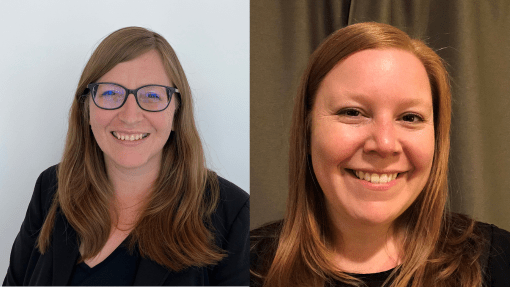
At FW we are big believers in the value of mentoring for career progression, personal development and enjoyment. Here Dr Laura Yeates, cardiac genetic counsellor at the Garvan Institute of Medical Research, and Rebecca MacIntosh, general genetic counsellor at Sydney Children’s Hospitals Network, share their approach to the development and evaluation of a mentoring program for their professional society.

Mentoring is like yoga: you know it’s good for you but if you don’t make it a priority, it slips its way down the to-do list!
In 2018, we joined the executive of the Australasian Society of Genetic Counsellors (ASGC), a special interest group of the Human Genetics Society of Australasia (HGSA). The ASGC is a volunteer organisation providing leadership, representation, advocacy and support for our 450+ members.
Most of our members work in clinical, research, academic, laboratory and policy roles, and like many of us, they’re time poor. As an executive, we were keen to explore how we could upskill and promote the development of our members, and then it came to us…a mentor program.
Like all good genetic counsellors, we reflected on our membership base. We have some incredibly experienced members, who consistently put their hands up to volunteer for the ASGC. And we wanted to channel the enthusiasm of the new graduates long term. Selfishly, we hoped a mentor program would not only help them in their career progression but also identify potential future volunteers!
Lucky for us, as we started to plan our program, the wonderful paper from Vassallo et al. detailing the evaluation of the Franklin Women Mentoring Program was released. To ensure funding and future proofing of our program, we realised a formal evaluation was essential.
Our program was well received by our 36 participants. We were particularly excited to see that both mentors and mentees found value in the program in equal measure, with several mentors commenting that it boosted their own confidence.
Reciprocal learning was a key motivator for participation, with mentors joining the program to “support the next generation, give back to the ASGC and share their knowledge” while mentees sought to “increase their professional network, gain advice about career progression and learn from others”.
This altruistic ethos was the backbone of our program and enabled us to develop a program that filled a gap in the professional development of genetic counsellors in Australia and New Zealand. The paper with our formal evaluation has just been accepted for publication in a special issue of Genetics in Medicine Open and conversations have begun to combine our program with other special interest groups in the larger HGSA. Exciting times ahead for this program. A huge thank you to Franklin Women for all the inspiration and support, and particularly to Melina for speaking at our midpoint check-in.
